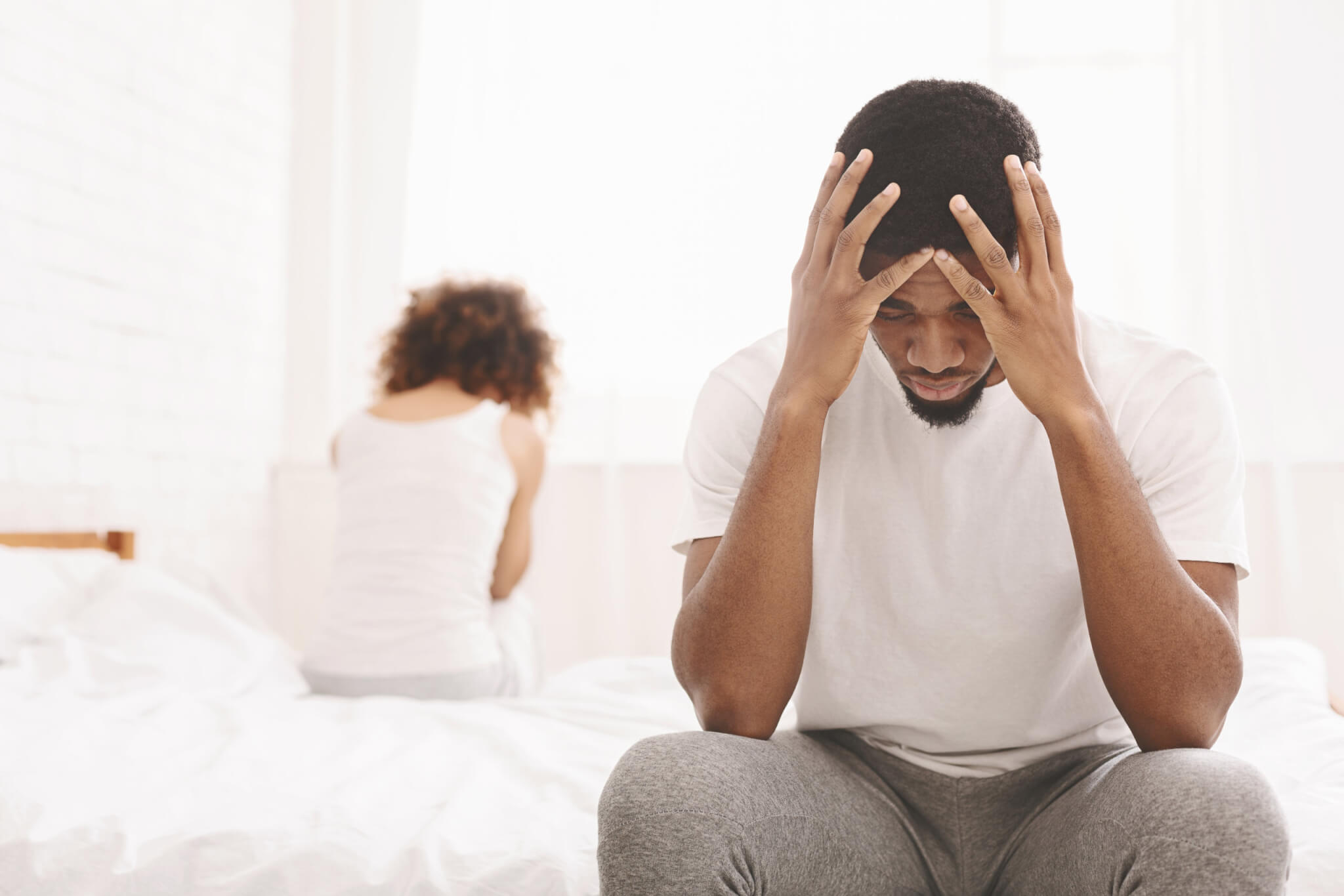NEW YORK — As a former snorer, my noisy grunts and snorts would sometimes keep my girlfriends up at night, making them extremely tired in the morning. They were unable to get a good night’s sleep and it was all because of me. Before getting my CPAP machine years ago, I never took into account how my snoring could be affecting my partners. But a recent study — published in the journal Frontiers in Psychology — shows that I definitely should have. According to the team of researchers from three Canadian universities, a partner’s sleep struggles could worsen relationship satisfaction — depending on how they prioritize goals.
For the study, researchers analyzed data from 113 heterosexual couples, with ages spanning from 21 to 82. They measured each partner’s sleep efficiency (the ratio of time asleep to total time in bed), relationship satisfaction, and goal adjustment capacities. Goal adjustment refers to how we react when a goal becomes unattainable. It involves two key abilities: disengaging from the blocked goal and reengaging in new goals.
Here’s where it gets interesting. The study found that when one partner slept poorly, the other partner tended to report lower relationship satisfaction a year later. But this effect was buffered for people high in goal disengagement. In other words, being able to let go of unattainable goals seemed to protect the relationship from the fallout of a partner’s sleep issues.
Why the link between goals and sleep? Researchers theorize that when your partner is struggling to sleep, it becomes a stressor that may require you to put some of your own goals — like work or leisure plans — on hold. Being able to flexibly disengage from these goals as needed frees up resources to support your partner and manage the sleep situation. This ability was tied to more “active coping” behaviors aimed at tackling relationship challenges.

Conversely, people low in goal disengagement may get stuck trying to juggle multiple goals on top of a partner’s sleep stress. The study found their partners tended to engage in more self-blame, which further eroded relationship satisfaction.
“Here we show that someone’s general capacity to let go of unattainable goals seems to prevent worsening satisfaction with their relationship, if their spouse experiences sleep problems,” says lead study author Dr Meaghan Barlow, an assistant professor at Wilfrid Laurier University in Canada, in a media release. “This ability might allow such people to put more time and effort into their relationship and protect their spouse from blaming themselves.”
Goal reengagement — taking on new goals when old ones are thwarted — had a more complex role. For people struggling with their own sleep, high goal reengagement was actually linked to worse relationship satisfaction over time. The study suggests that while taking on new goals can sometimes be adaptive, it may backfire if it spreads a person too thin when they’re already depleted by sleep issues. High reengagers in this situation tended to withdraw effort from the relationship, perhaps to pursue outside goals.
So what’s a sleep-deprived couple to do? Researchers advise remembering that sleep is a “team sport” in relationships. If your partner develops a sleep problem, you may need to temporarily shelve some personal goals to prioritize supporting them and managing the stressor together. Figuring out which goals can slide to the back burner is part of the process.
At the same time, be judicious about taking on new pursuits. While a new goal can be energizing, it may sap needed resources if your own sleep is compromised. Zeroing in on the goals that matter most is key.
Ultimately, the study highlights sleep as an often invisible relationship challenge. While couples readily seek help for issues like communication or intimacy, sleep problems can fly under the radar or be dismissed as an individual struggle. But whether we realize it or not, how well we and our partners rest ripples into the health of our bonds.

More research is still needed to untangle the complex links between sleep, goals, coping, and relationship thriving. Future studies could track couples over longer periods, include same-sex relationships, and even test goal disengagement training as a potential intervention for couples contending with chronically disrupted sleep.
In the meantime, the key takeaway for couples is to take sleep seriously as a relationship issue, not just a solitary one. Think of healthy sleep as a gift that helps you show up as your best self for your partner. And if sleep troubles arise, know that flexibly shifting gears as a team could make all the difference in weathering the storm together.
Top 10 Ways To Ensure A Good Night’s Sleep
Are you tired of tossing and turning all night, only to wake up feeling exhausted? It’s time to reclaim your sleep! Here are ten effective tips to help you get the restful night’s sleep you deserve:
- Establish a Consistent Sleep Schedule: Go to bed and wake up at the same time every day, even on weekends. Consistency helps regulate your body’s internal clock, making it easier to fall asleep and wake up naturally.
- Create a Relaxing Bedtime Routine: Develop soothing pre-sleep rituals, such as reading a book, taking a warm bath, or practicing relaxation exercises like deep breathing or meditation. Avoid stimulating activities like watching TV or using electronic devices, as they can interfere with your ability to wind down.
- Optimize Your Sleep Environment: Make your bedroom a haven for sleep by keeping it cool, dark, and quiet. Invest in comfortable bedding and a supportive mattress and pillows. Consider using blackout curtains, white noise machines, or earplugs to block out any disruptions.
- Limit Exposure to Screens Before Bed: The blue light emitted by screens can suppress melatonin production, making it harder to fall asleep. Aim to power down electronic devices at least an hour before bedtime, and if you must use them, use blue light filters or night mode settings.
- Watch Your Diet and Hydration: Avoid heavy meals, caffeine, and alcohol close to bedtime, as they can disrupt your sleep cycle. Instead, opt for light, sleep-friendly snacks like nuts, yogurt, or herbal tea. Stay hydrated throughout the day, but be mindful of your fluid intake in the evening to minimize nighttime trips to the bathroom.
- Exercise Regularly: Engaging in regular physical activity can improve sleep quality and help you fall asleep faster. Aim for at least 30 minutes of moderate exercise most days of the week, but avoid vigorous workouts too close to bedtime, as they may energize you and make it harder to wind down.
- Manage Stress and Anxiety: Practice stress-reducing techniques like mindfulness meditation, progressive muscle relaxation, or journaling to quiet your mind and promote relaxation before bed. If worries keep you up at night, try jotting them down in a worry journal earlier in the day to address them before bedtime.
- Limit Naps: While short power naps can be rejuvenating, long or late-day naps can disrupt your sleep-wake cycle. If you need to nap, aim for 20-30 minutes earlier in the day to avoid interfering with your nighttime sleep.
- Avoid Stimulants and Nicotine: Stimulants like nicotine can disrupt your sleep, so try to avoid them, especially in the hours leading up to bedtime. If you’re a smoker, consider quitting or at least refrain from smoking close to bedtime to minimize the impact on your sleep.
- Seek Professional Help if Needed: If you consistently struggle with sleep despite trying these tips, consider seeking advice from a health care professional. They can help identify underlying sleep disorders or other issues contributing to your sleep difficulties and provide personalized recommendations for improvement.

Don’t overthink it. Just sleep in different rooms.
snoring? insomnia? not feeling well? getting up real early? Yep different rooms.
Trying to “tough it out” attempting to sleep in the same bed/room leaves you with two people without enough sleep. What are the odds of having good days? more likely you will have a tiff over minutia. especially if this happens two nights in a row (pun intended)
Slip into the guest bedroom for some better odds of solid sleep for the both of you. Now what are the odds of two good days? you know the answer.
Forget the myth that occasionally sleeping apart is a sign of a troubled marriage. IT IS NOT!
Its a sign of a happy heathy relationship.